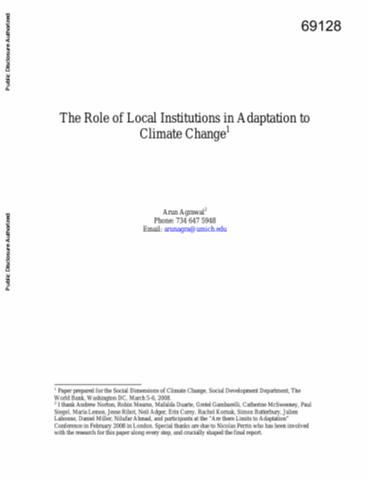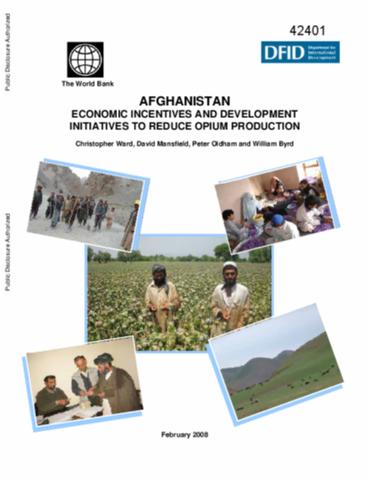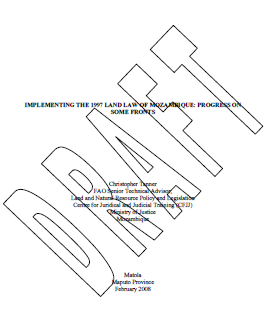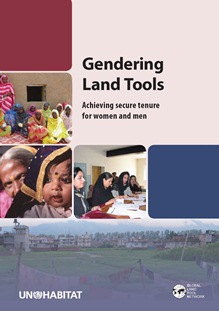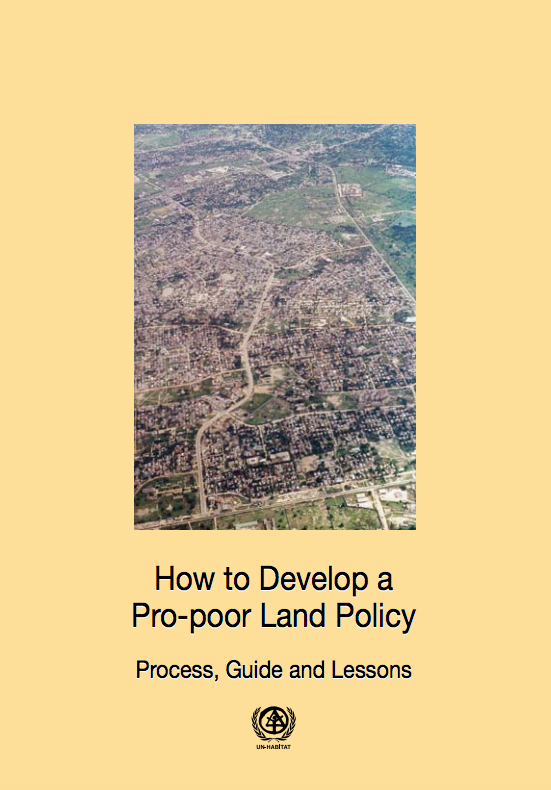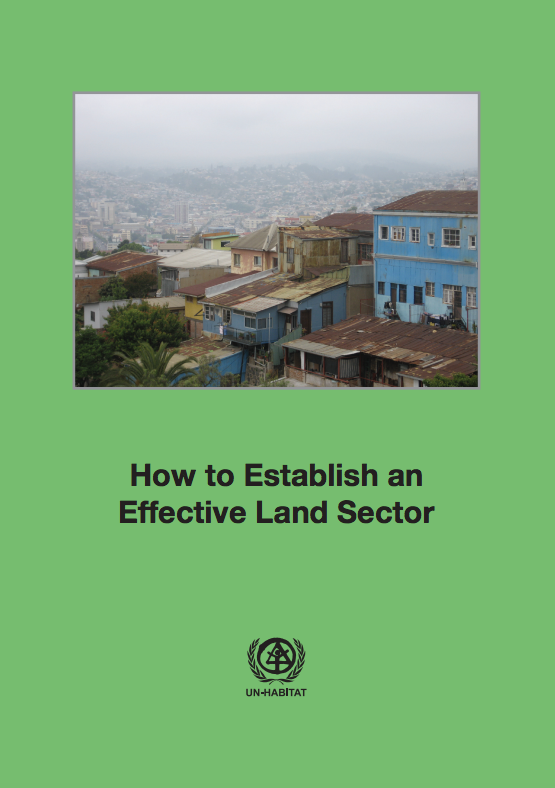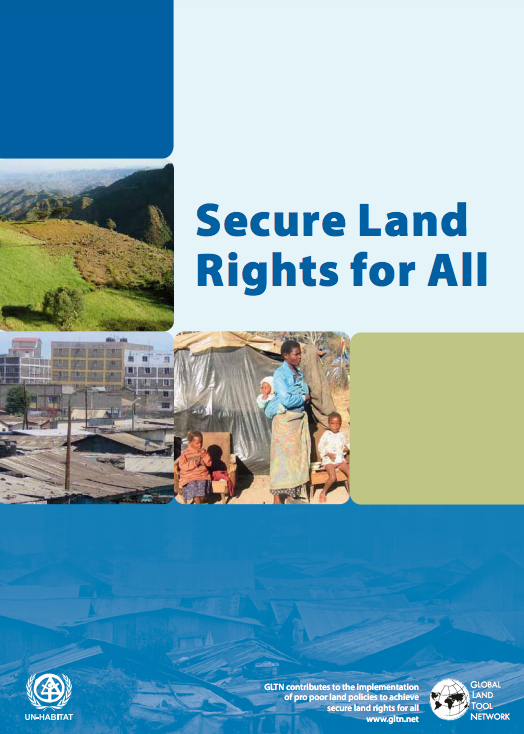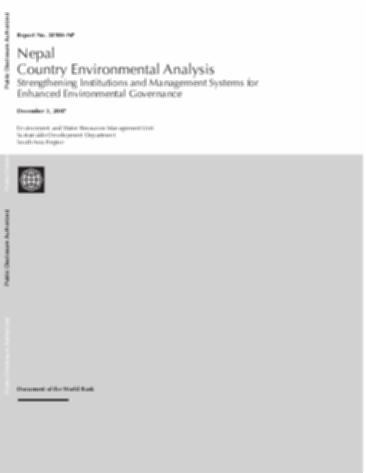The Role of Local Institutions in Adaptation to Climate Change
This review focuses on the role of local institutions in adaptation to climate change. It does so under the belief that climate impacts will affect disadvantaged social groups more disproportionately, and that local institutions centrally influence how different social groups gain access to and are able to use assets and resources.

